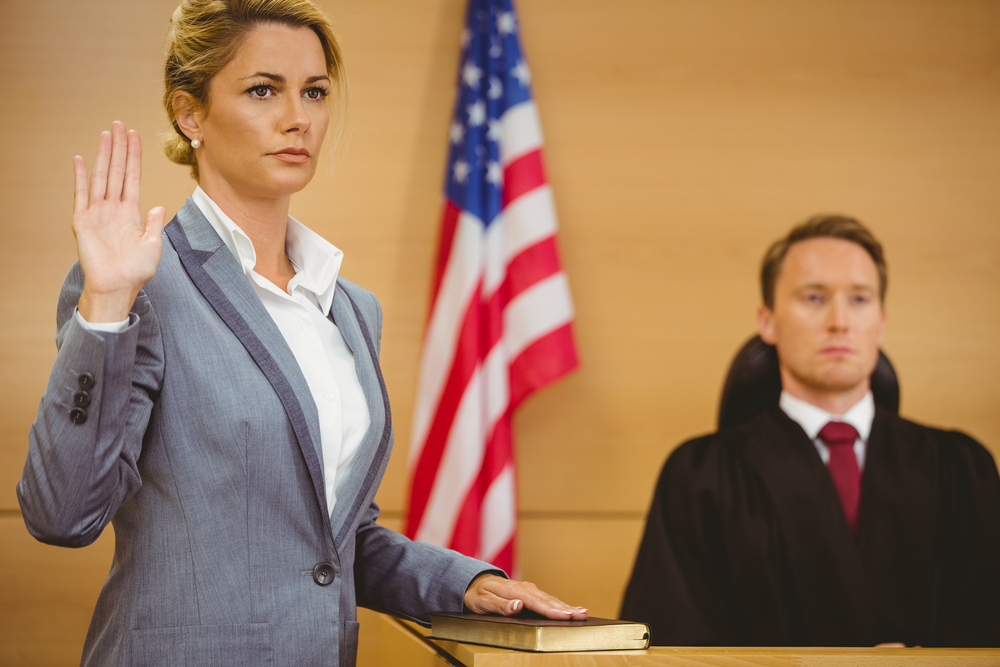Editor’s Note: This article is about witness preparation. eDepoze, by eDepoze, is a litigation software as a service that handles post e-discovery litigation events, including tools for more effective and paperless witness preparation. If you are interested in learning more, ask for a demo.
Many high-stakes lawsuits filed these days often hinge on the behavior of company employees. Given growing anti-corporate attitudes among jurors, managing jurors’ perceptions of company witnesses and experts is more important than ever. Most of the time, attorneys conduct witness preparation before a witness is scheduled for a video deposition and certainly before a witness takes the stand at trial. Witness preparation is part of a lawyer’s toolbox and something she does routinely for every case. So, what then would an attorney – with years of experience prepping witnesses – want with a trial consultant? There are many reasons why one would want a skilled trial consultant, trained in juror psychology and witness preparation techniques, to join the witness prep team. Primarily, attorneys have been trained to think about witnesses in terms of the evidence they provide. That is, they mostly consider the discrete bullet points of facts that witnesses submit to the record. Conversely, experienced trial consultants understand the psychology of witnesses and the psychological barriers to persuasive communication, such as anxiety, motives and witnesses’ agendas. We also understand juror psychology – i.e., how witnesses’ messages can either positively or negatively impact their credibility among the jury panel. Working collaboratively, we can ensure the witness’ testimony is not only providing strong thematic content but also delivering messages in a way that increases credibility.
In addition to working collaboratively to improve witness credibility, there are other benefits of having a trial consultant assist with your witness preparation sessions. We briefly review those below.
Being Too Close Can Affect an Attorney’s Witness Evaluations
One key reason for involving a trial consultant to assist with witness preparation is that an attorney may become too close to an individual witness to see his flaws.  Here is a common scenario: You have worked with this fact or expert witness for years. Overall, you think the witness is likeable and believable and think she will be fine for her deposition or trial testimony. Yet even witnesses who appear “fine” may be exhibiting several of the basic characteristics that jurors have told us over the years negatively impact credibility – e.g., looking down when answering the key questions, using vocal fillers (“ah,” “um,” “probably,” “more than likely,” “I guess”). These behaviors inadvertently communicate a lack of confidence in the content of witnesses’ testimony. Sometimes attorneys are so close to the people who will be witnesses in a case that it’s difficult for them to even see that there might be a problem. If you hear yourself say your witness will be “fine,” we encourage you to take a closer look.
Here is a common scenario: You have worked with this fact or expert witness for years. Overall, you think the witness is likeable and believable and think she will be fine for her deposition or trial testimony. Yet even witnesses who appear “fine” may be exhibiting several of the basic characteristics that jurors have told us over the years negatively impact credibility – e.g., looking down when answering the key questions, using vocal fillers (“ah,” “um,” “probably,” “more than likely,” “I guess”). These behaviors inadvertently communicate a lack of confidence in the content of witnesses’ testimony. Sometimes attorneys are so close to the people who will be witnesses in a case that it’s difficult for them to even see that there might be a problem. If you hear yourself say your witness will be “fine,” we encourage you to take a closer look.
Read the rest of the blog at LitigationInsights.com.

